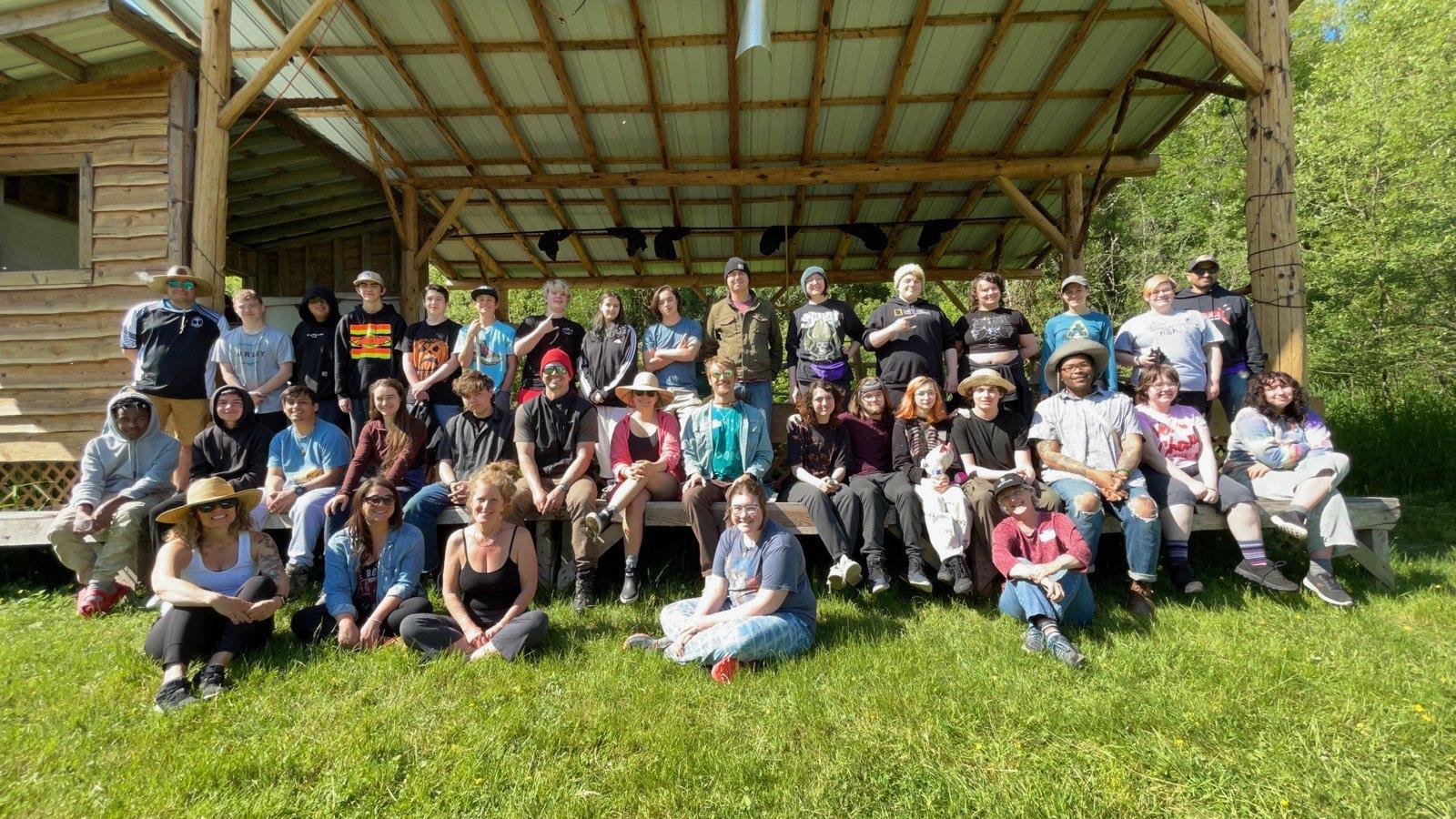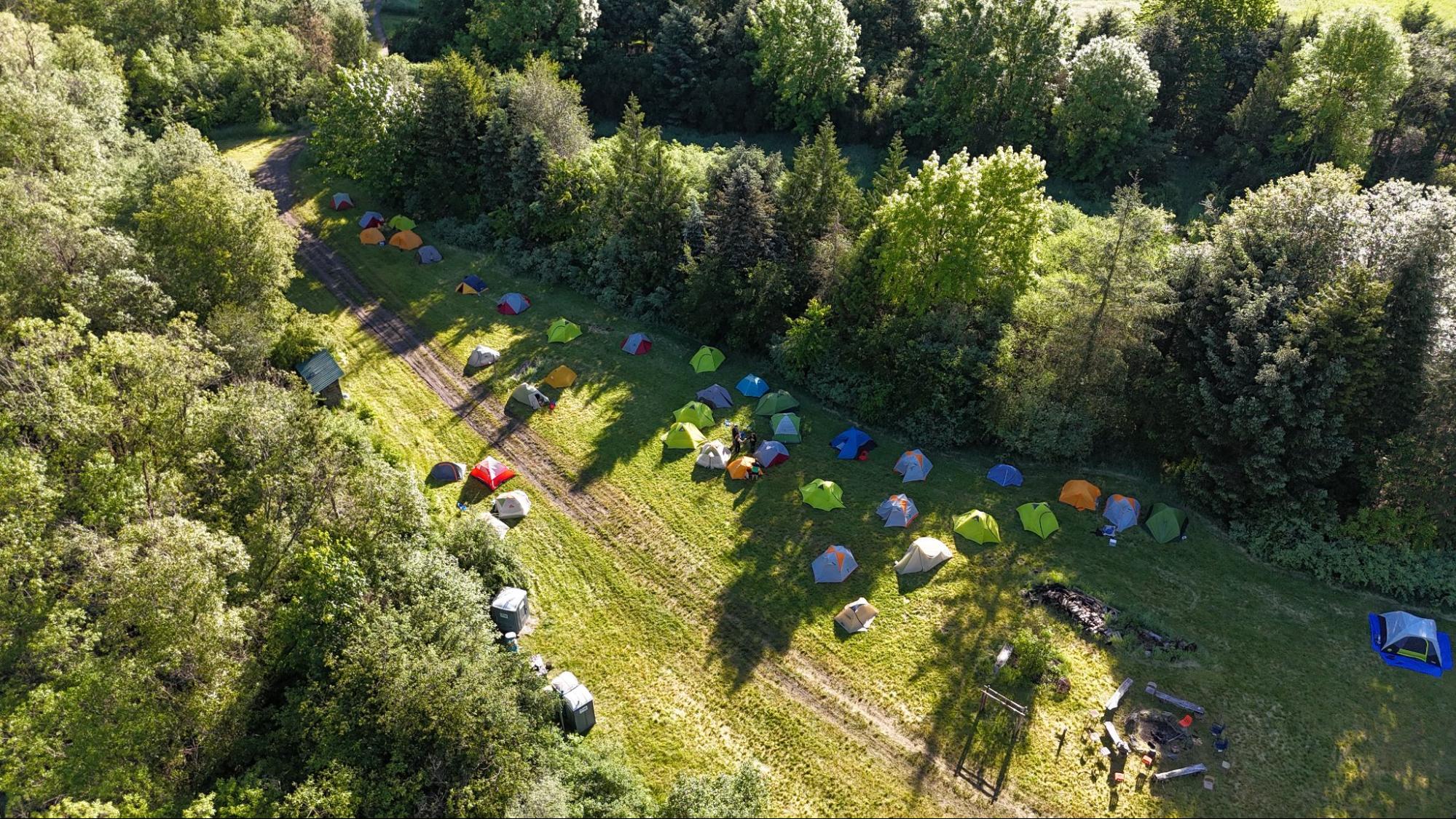Outdoor educators who inspire: Whatcom Intergenerational High School
Science teacher Cameron Kolk on how place-based education that integrates Western and Indigenous ways of knowing can foster a stronger sense of student identity, community and lasting, trusting relationships.
by Erin McQuin
At WTA, we collaborate with a community of educators who have included outdoor education and programming with their students. The Outdoor Leadership Training program supports these educators and their schools with gear and training.
We recently connected with a few educators we admire to learn more about how they are building better futures for their students.
Whatcom Intergenerational High School (WIHS) is a free public charter school in Bellingham with a focus on equity. WIHS supports students’ learning and builds community through a holistic approach that is student-driven with support from elders. WTA first connected with WIHS in 2023 when science teacher Cameron Kolk attended a hiking workshop with the Outdoor Leadership Training program. We provided gear for WIHS’s Forest School camp-outs in 2023 and 2024.
We connected with Cameron to learn more about Whatcom Intergenerational High School.
Can you tell us about WIHS's goals for outdoor programs?
Whatcom Intergenerational High School was co-founded by the Indigenous-led non-profit, Whiteswan Environmental. Our partnership with WE allows us to explore both Western and Indigenous ways of knowing. All of our students are exploring the question of “Who am I” and “Where do I come from?”
Our school has an ethic of place-based education and stewardship built into everything we do. When we spend time outside in the Salish Sea, we connect our experiences back to those questions. Our identities and well-being are tied to the land and our learning explores these relationships. Some of our goals include every student developing a reciprocal relationship with nature, building community outdoors, learning about this place and when facing climate change and settler colonial impacts how to foster resilience through stewardship.
 WIHS Forest School camping trip in 2023. Photo courtesy Cameron Kolk
WIHS Forest School camping trip in 2023. Photo courtesy Cameron Kolk
What inspired you to start leading outdoor programs with WIHS?
Being part of a unique school provided me with access and support to create our program. One of the main reasons I became a teacher was to foster connection and stewardship with all outdoor spaces. At previous schools, I was able to do this on a smaller scale in neighborhood green spaces. At WIHS, we are afforded the time and resources to dream a little bigger and give our students opportunities to spend days at a time in nature’s classroom. Washington Trails Association and the North Cascades Institute have been instrumental in supporting our program with gear, personnel and expertise.
Why are outdoor programs so important?
The research is definitive that time outdoors makes us healthier, happier and more capable. In order to care about the land, we must have a relationship with the land. By getting students outdoors and hands-on, they can cultivate that relationship on their terms.
Many of our students live in urban areas, where they would not otherwise be able to access these opportunities that they have through school. Fair access to the outdoors is crucial for us to collectively address our environmental and health challenges.
I have also found that spending time outdoors together fosters a strong community and lasting, trusting relationships.
How do you uplift the students you serve?
One way we uplift our students is by including them in the design and implementation of our outdoor education. This year our health teacher Waverly Shreffler had our students plan and help prepare all of our meals as a part of their coursework. Students knocked it out of the park, by running the kitchen and helping to prepare food for the whole school. Having leadership roles helps the students buy in and feel empowered to lead.
How do you encourage your students to become outdoor leaders?
We encourage our students to become outdoor leaders by assigning roles and mutual responsibility for success. Whether we are in the classroom or outdoors, things only work when we work as a team. Everyone is important and everyone contributes to our success.
Are there any projects you’re excited about right now?
We just finished our two annual camping trips. At the beginning of May was our Returning to the Homeland Language Camp in partnership with Whiteswan Environmental. Our Indigenous students spent four days camping on the San Juan Islands and learning their language. Ashley Peele, one of our teachers, did a fantastic job coordinating and leading this trip.
We just completed our annual Forest School camping trip on the South Fork on the Nooksack River in partnership with Evergreen Land Trust and North Cascades Institute. The entire school attended this event and students were begging to stay another day. We are looking forward to planning both our trips next year with an additional day outdoors.

The River Farm campsite from above. Photo courtesy Cameron Kolk


Comments